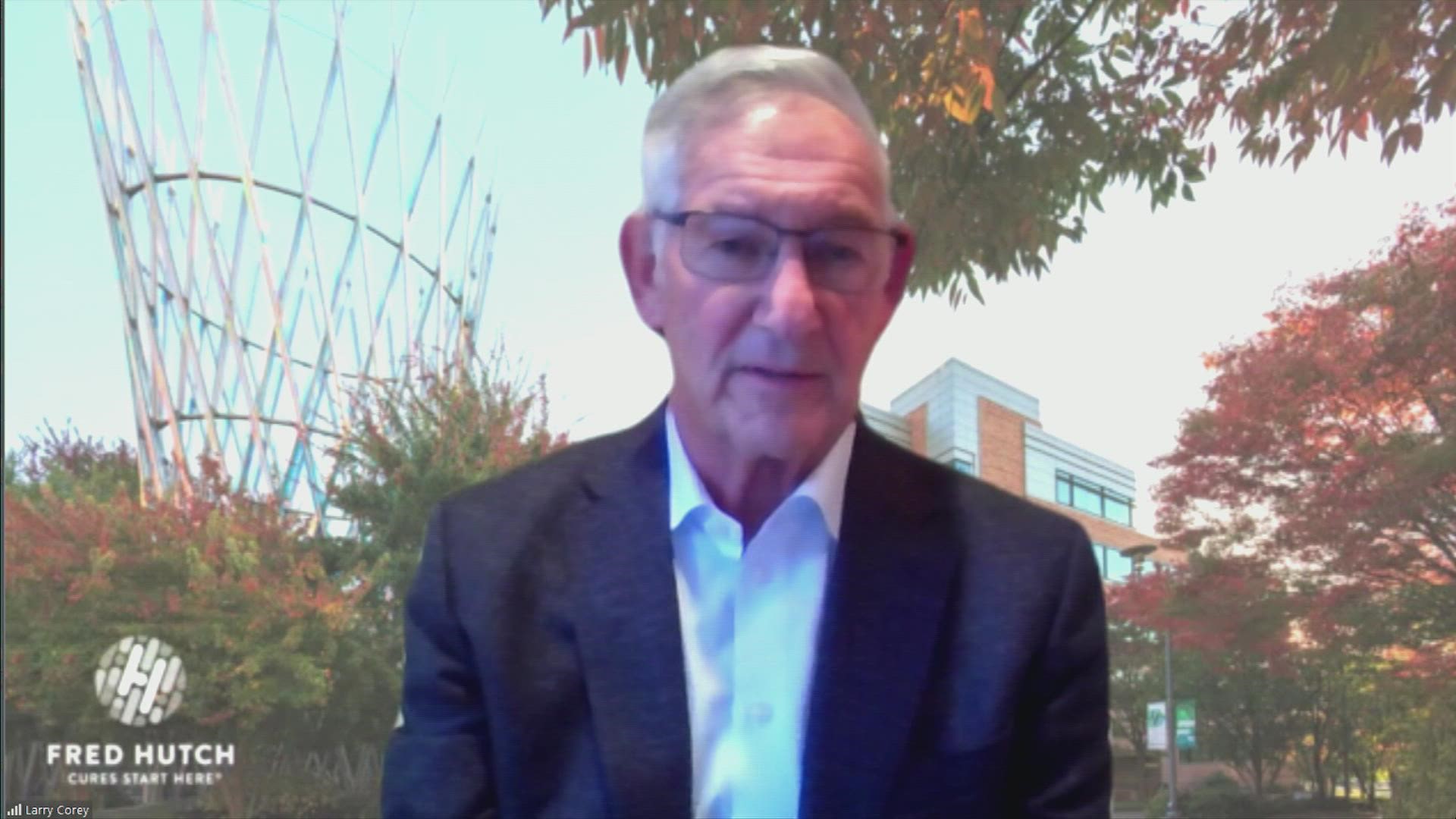SEATTLE — The Centers for Disease Control and Prevention (CDC) recommend those who are immunocompromised get a booster shot of the COVID-19 mRNA vaccine eight months after their second shot earlier this week.
It came after months of speculation about how the vaccine could become less effective over time and potentially ineffective against emerging variants of the COVID-19 virus.
KING 5 reached out to Dr. Larry Corey of Fred Hutch, a renowned expert in virology, immunology and vaccine development, to get answers about these booster shots and what they mean for the future of the pandemic.
Corey sat down with KING 5 anchors Mimi Jung and Jake Whittenburg to answer many of those questions surrounding booster shots.
Q: What's your response to people who say that these vaccine mandates are infringing on their freedom?
A: "I also feel that there's a societal obligation that we all have to not take an infectious disease of the magnitude that COVID-19 has on other people and unwittingly transmit it to others. So, I don't think this is just anymore about personal freedom."
Q: Starting next month, millions of Americans will be able to get that third booster shot. There seems to be debate, though, over whether there's enough research to support the need for a third shot. What is the evidence that vaccinated people need a booster?
A: "Well, there's a significant amount of evidence to suggest that we're starting to see waning immunity and starting to have the uptick of vaccine breakthroughs. Now, when they occur, they're mild cases. But this virus is a formidable foe, and one of the lessons we have learned is that it does take a while to implement a vaccination program.
"We have seen evidence, especially from the Pfizer vaccine that, after the second dose, your levels of antibodies are 400. Within seven months, they're down to 40. If we give that booster, they go up to over 2000. That is the basis of both the immunology of it and the fact that through Israel, and through our own studies that are coming out in our own states, we're seeing increased breakthroughs during the month of July."
Q: So, you are confident in the research that's showing the need for this third booster shot?
A: "I am confident that we're seeing waning immunity. I'm confident that delta itself requires higher levels of immunization, and I'm confident that you're making a decision, that's a risk/benefit. I'm confident that the third dose is safe. We have lots of data on that, and I'm confident that the third dose raises your immunity to essentially a log tenfold higher than it was after the second dose.
"So, when you look at that, it's safe, gives you very high levels of immunity, higher levels of immunity are associated with higher protection."
Q: What about people who got the Johnson & Johnson shot?
A: "We're in active discussions. I just had a long discussion with the leadership of Johnson & Johnson yesterday. So, there is a feeling here that they also have data that's showing that a second dose gives a very nice boost."
Q: We see the hospitalizations rising with 25% of all ICU beds in the state filled with COVID-19 patients. What is what is the one thing right now that really concerns you?
A: "This is still an epidemic of the unvaccinated, and it's a preventable disease. If you get vaccinated, you will not be in the hospital. So, to the people who are unvaccinated, I guess I'm saying to you: this is a strain that is more infectious, more rapidly disseminates in the body."

